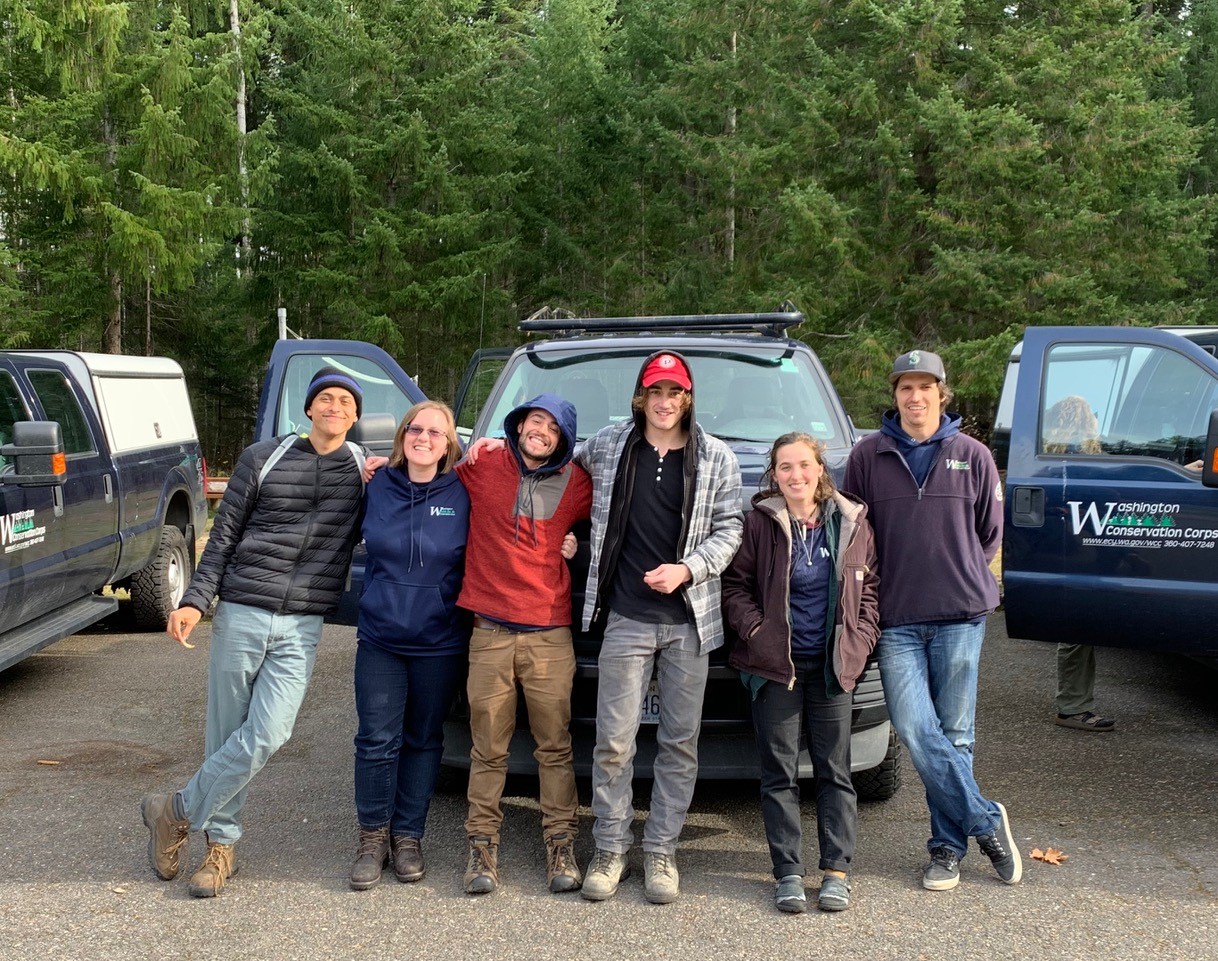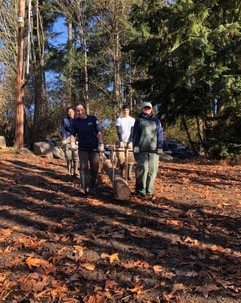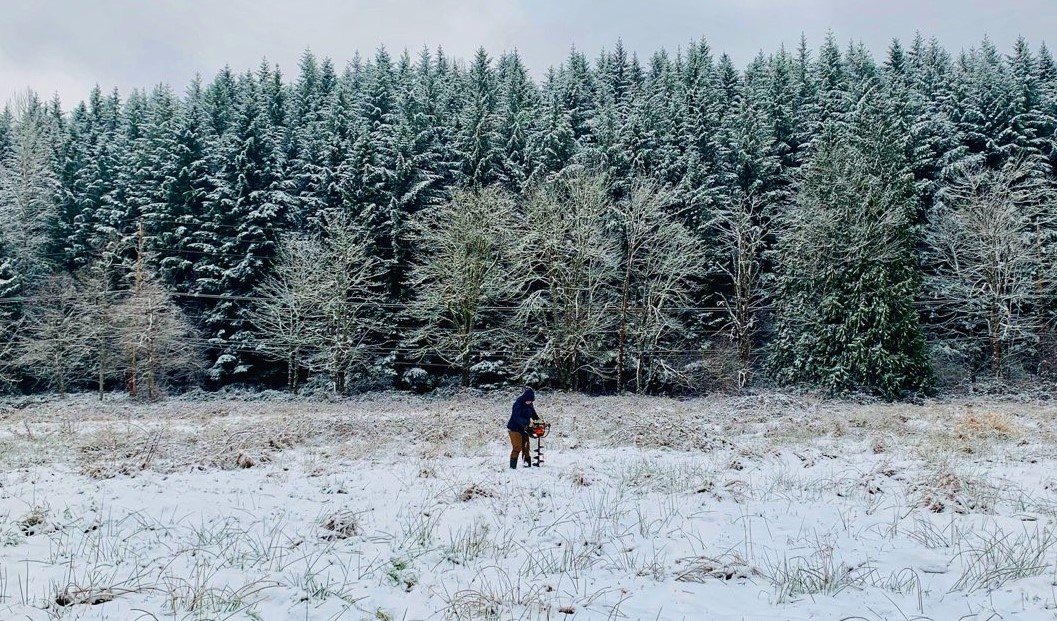I learned about the Washington Conservation Corps (WCC) from a coworker after I moved to Washington. She said it was a great program offering young adults a chance to get outdoors, learn new things, and gain environmental experience.
It sounded interesting, but I was hesitant because I had not done manual labor before. Would it be a good fit? Finally, with some encouragement from friends and family, I applied to multiple field crews across Washington. The next day, I got a phone call from a supervisor leading a crew on the other side of the state, asking if I would like to interview for an 11-month position.
Next thing I know, it’s October. I was moving from Spokane to Renton, a place I had never been, and where I knew no one. It was one of the best decisions I have ever made.
Life on a restoration crew
WCC offers multiple types of field crews: trail, restoration, and spike crews. For almost a year now, I have served on a restoration crew (nicknamed ‘Coho’ Crew for the silvery salmon species) with four other AmeriCorps members. My crew, led by supervisor Zack Gifford, is also one of WCC’s five designated disaster response crews. In just one year of service, I have accomplished and learned things I never thought I would.
AmeriCorps members gather for a group photo in October 2019. Members
My first project site was the Middle Issaquah Creek Natural Area. As a crew, we planted native species like western red cedar, Pacific ninebark, and salmonberry, and installed reedy branches of willows and cottonwood — a process called livestaking — along the creek to improve water quality and support salmon habitat.
Gaining new skills and experiences
We also learned how to identify the plants we were putting in the ground. I can now walk a trail, point out an entire patch of thimbleberry based on the leaves alone, and share its scientific name, “Rubus parviflorus.” I could not have done that a year ago.
At Middle Issaquah Creek Natural Area, I worked harder than I ever had in my life. In the middle of the project, massive floods saturated the site and washed through important planting areas. The solution? Logs. Big, giant logs that we carried on our shoulders or used devices called tree straps to help us haul the logs through the mud.
Coho crew team carrying log using tree straps. Photo: Brittney Deras.
We installed the logs in the creek bed to stem or redirect the flow of the water. Some logs we handled with two people while others took four. A few required six. It was hard, but all our efforts meant this site would become a thriving habitat for Washington wildlife.
Even now, as we approach the end of the 11-month service term, the Coho crew is making progress on restoration sites throughout King County. In spring and summer, we focus on site upkeep and monitoring. We are grubbing out and safely applying herbicide to invasive species like Himalayan blackberry. These invasive species can outcompete important native plants. We also water recently planted sites and brush-cut tall grasses to prevent them from shading out the native species we worked hard to plant.
Many benefits of trying new things
My supervisor, Zack, shared that the more effort you put into a year of service, the more you can get out. Keep going, and work hard. Put yourself out there, and try new things. I made connections and friendships with people I never could have made without WCC.
I even conquered a few fears! With safety gear, I waded through creeks with water up to my hips, and trekked through boot-stealing mud. I used power tools that had previously been intimidating, like brush cutters and augers, and I operated an ATV through mud. All with the help and support of my crew.
Emily Atkins operates a planting auger to dig holes for native trees and shrubs during a winter restoration project. Photo by Andrew Rowan.
WCC members also get to participate in a weeklong training. The program offers a broad range of courses, and members can decide which type of trainings they want to focus on. I earned a first aid certification and learned about ethnobotany in the Pacific Northwest. Through field projects and great training opportunities, I have expanded my horizons and learned how to take chances.
For those considering a service term with WCC, but are feeling unsure as I was, I encourage taking that leap. Learn something new and be open to new experiences. You just might learn something new about yourself.
Apply to the WCC today
WCC is now recruiting 11-month AmeriCorps members on field crews across the state. Learn more and apply today at ecology.wa.gov/wcc.




